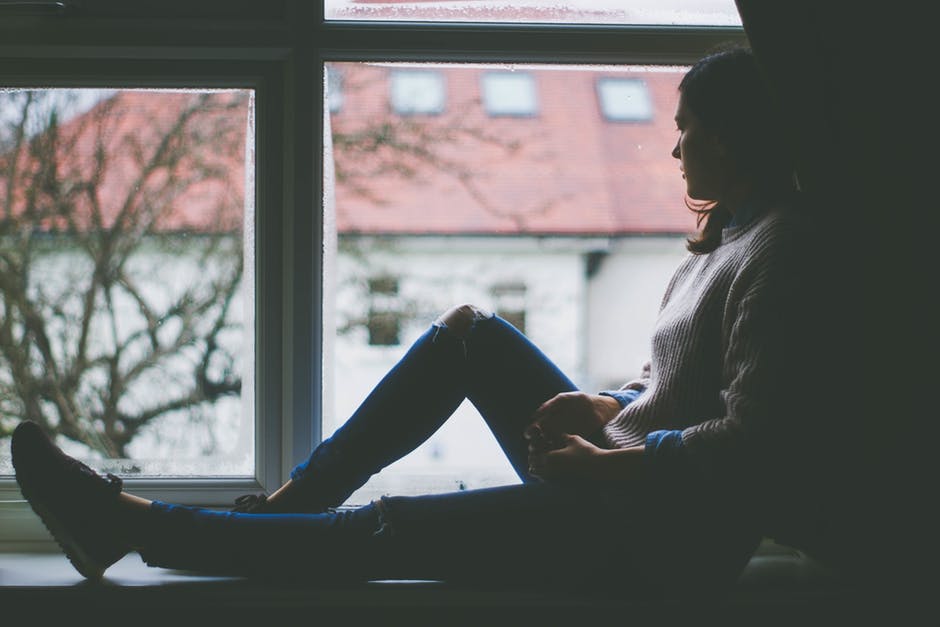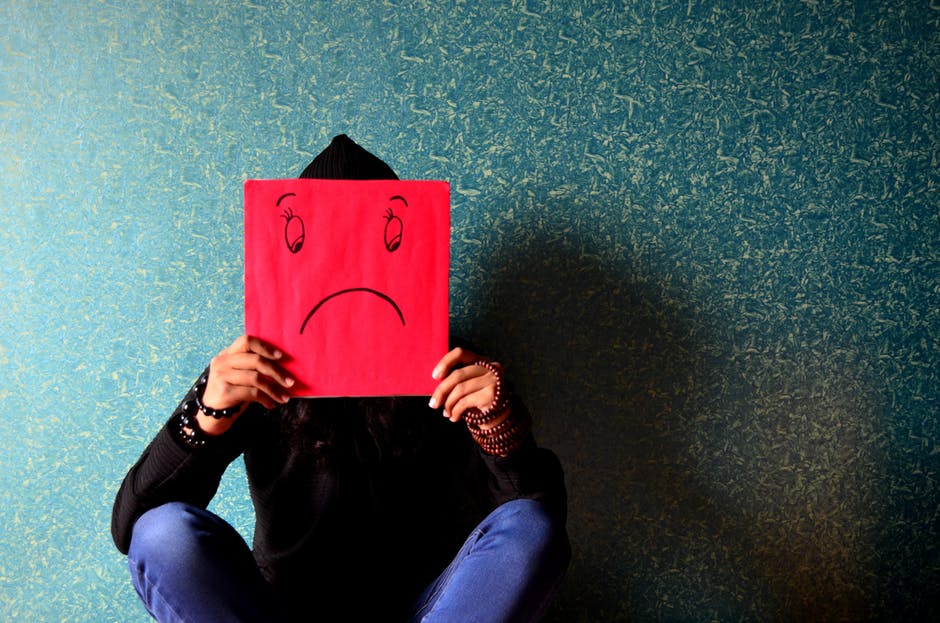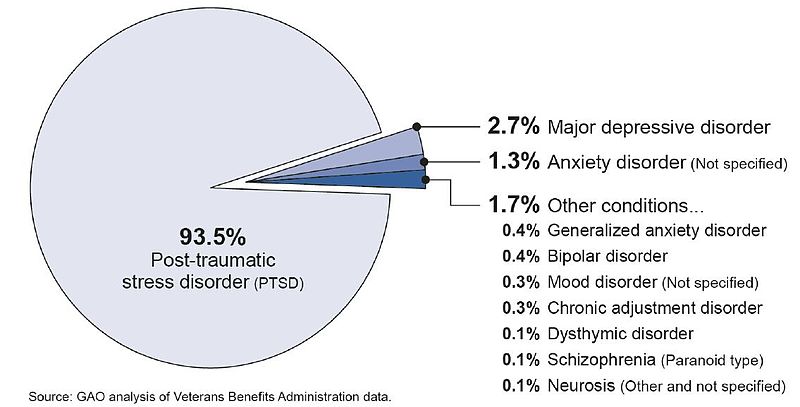EVERYTHING YOU NEED TO KNOW ABOUT MOOD DISORDER #5
Source Image: Schriever
Another great and exciting series is here again on everything you need to know or should know, let not waste anytime let get started, for the last topic click here

Evolutionary Impact
What does it mean to be in a good mood or a bad mood? Moods clearly have an impact on people. Life is easy when you are confident and positive; life is overwhelming when you feel down sometimes and hopeless. It is easy to see the beneficial effects of being in a good mood; it is hard to see any value in being depressed. So why do moods exist? More specifically, why has nature not selected only good moods, which seem to promote effective, productive behavior? If one looks casually at something like depression, one might well expect that external selection would have eliminated it long ago. However, depression is vividly described in writings dating back thousands of years, and there is no indication that it will disappear anytime soon In fact, it seems to be on the increase, especially among the young.
Thus mood disorders appear to be counterproductive and yet have not been eliminated by natural selection. Why? If mood disorders did not have a genetic component, that might explain the finding; but genes clearly do play a role in mood disorder. Therefore, it is likely that some benefit is associated with mood disorders, or at least that they exert no negative selective pressure. We will get back to this issue later in this topic and address it from other perspectives.

Source Image: Pexels
One should expect many factors to influence something as critical to functioning as mood. Negative events, such as the loss of a job or the breakup of an important relationship, are capable of triggering a significant shift in a person’s mood. The question here is how. What happens to trigger the changes in feelings? Some people rarely get depressed when faced with negative life events. The question here is why. Are there biological differences that account for some people getting depressed and others not? Can experiences increase or decrease people’s risk for mood disorders? All these critical questions will be addressed in this topic. For now, you should note that
- Mood swings are often, but not always, a response to environmental events;
- There are large individual differences in susceptibility to these mood swings; and
- A system so central to human functioning is likely to be affected by many factors.
In trying to understand the evolutionary significance off something like depression, one should look at the effect of depressive behavior on a depressed person as well as at the effect of the person’s depressive posture and facial expressions on others.

DEPRESSIVE DISORDERS
Everyone feels down and depressed occasionally. It may be unpleasant, but it is not necessarily pathological. However, more severe or long-lasting depression may qualify as a depressive disorder. Even severe depression that occurs as a result of significant loss, such as the death of a close friend or relative, is not considered pathological unless it continues longer than is typical. For the first few weeks after such a loss, the grief can be every bit as intense as in clinical depression.
For most people, however, the intense grief is replaced by a less intense sense of loss and an ability to resume normal activities. People do not qualify for a diagnosis of depression unless their intense grief lasts longer than two months (APA, 2000).
Two types of depressive conditions are recognized in The Diagnostic and Statistical Manual of Mental Disorders (DSM-5).

Source Image: Pexels
Major depression is an intense form of depression that occurs in episodes. It is called major depression to differentiate it from the normal depression that everyone experiences occasionally. Dysthymic disorder refers to a chronic form of depression-almost a depressive personality. In fact, there is considerable debate about whether dysthymia should be classified as a mood disorder or as a personality disorder. Occasionally, major depressive episodes occur in individuals who also suffer from the more chronic dysthymia, and this condition is known as double depression. This topic will describe major depression and dysthymia as well as three additional variations on depression: seasonal affective disorder:
- Postpartum depression, and
- Childhood depression.
- Major depression an intense form of depression that occurs in episodes.
- Dysthymic disorder a chronic, lower-level depression.
- Double depression is a condition by periodically major depressive episodes in people who also suffer from the more chronic dysthymia.

MAJOR DEPRESSION
Major depression occurs in episodes, which must last at least two weeks to qualify for the diagnosis. The episodes last around six months on average, and it is rare for them to last longer than a year or two, even without treatment, a major depressive episode be classified by a constellation of manifestation that are summarized. Not every depressed individual shows every symptom, but most seriously depressed individuals show most of these symptoms. Major depression usually develops over a period of days to weeks, often preceded by a prolonged period of increased anxiety or mild depressive symptoms.
It seriously affects a person’s ability to meet the demands of life, although many people with severe depression continue to function, albeit with little joy or enthusiasm for life. Major depression tends to recur, especially in those people who experience their first depression at a young age. Having other psychological or have had several previous episodes, the major of people with major depression never seek treatment, especially among minority groups. One reason why so few people seek treatment for depression is that many people see it as untreatable, viewing it more as a character flaw. The characteristic distress, lack of motivation, and low self-esteem are viewed as things that should be overcome by sheer force of will. Such attitudes are more pronounced in some minority groups, which may partially explain the dramatic under treatment in these groups. Most people recover from major depressive episodes with few if any residual symptoms.
The incidence of major depressive disorder is twice as great in women as in men. Approximately 10 to 25% of woman and 5 to 12% of men will develop major depression during their lifetime (APA, 2000). 
Source Image: Wikimedia
This finding is so strong and so stable that the theories of depression have to address it. At any given point, approximately 3 to 9% adults qualify for a diagnosis of major depression. The average age of onset for depression has been decreasing dramatically in the United States, and depression in young people is now ten times more common than it was two generations earlier. This dramatic increase in childhood depression has not occurred in other cultures, which suggests that something about modern American culture may be depressogenic-that is, inclining to create depression. Also interesting is the fact that the 2:1 female to male ratio is not found among children; 2:1 female-to-male ratio is not found among children; boys are as likely as girls to develop severe depression. The rates of depression tend to be highest during middle adulthood (25-44) and to drop off after age 65 for both men and women.
Although depression appears to occur in every culture, there is considerable variation in how it is experienced for example, Latin cultures often complain of ‘’nerves’’ and headaches, whereas Asian cultures complain of weakness, fatigue, and ‘’imbalance.’’ and Western cultures complain of sadness and hopelessness. Most researchers believe that these differences represent different cultural perspectives on what are the central symptoms of depression. Furthermore, depressive manifestation differs as an outcome of age. Young children may experience physical symptoms, irritability, and social withdrawal, whereas adolescents and adults are likely to experience slowed motor activity, excessive sleepiness, sadness, and guilt.
Quick Question:
- How long has mood disorder been around?
- What factors trigger mood swings?

Reference List:
- What is a mood disorder?
- Mood Disorder Symptoms, Causes and Effect
- Major Depressive Disorder (Clinical Depression)
- Clinical depression: What does that mean?
- Types of Depression
Further Reading:
- Thase, M.E., Kupfer, D.J., Jarrett, D.B. Treatment of imipramine-resistant recurrent depression: I. An open clinical trial of adjunctive L-triiodothyronine. J Clin Psychiatry. 1989;50:385–388.
- Anderson IM, Edwards JG. Guidelines for choice of selective serotonin reuptake inhibitor in depressive illness.Advances in Psychiatric Treatment. 2001;7:170–180
- APA. Diagnostic and Statistical Manual of Mental Disorders. 3. Washington, DC: APA; 1980. DSM–III.
- APA. Diagnostic and Statistical Manual of Mental Disorders. 4. Washington, DC: APA; 1994. DSM–IV.
- Kessler, R.C., Barber, C., Birnbaum, H.G. et al, Depression in the workplace: effects on short-term disability. Health Affairs. 1999;18:163–171.
Hello @saho :)
Thank you for writing about this topic!
I was particularly interested in the part you highlighted the evolutionary significance of depression, which, I would prefer to word it as the evolutionary significance of low-mood.
Of course, while it is quite obvious for one to understand how fear has helped us to survive as a species (fight or flight response), the benefits of having low-moods such as sadness are not that clear. Still, it has been suggested that they yield adaptive functions. For instance, they often cause people to reconsider failed plans and even problems.
I was also glad to see you talking about posture and expressions, as a result of low-mood. From an evolutionary perspective this has been seen to be useful in non-human animals - rhesus macaques - whose submissive posture is thought to be an evolved adaptive strategy to being defeated :)
I find it truly interesting. But, I am not going to take any more of your time. I will stop here :D
All the best @saho!
Thanks,i will be talking more of it and examining the evidence.
To me, depression or low mood as Abigail coined it is as a result of not being contented with ones situation or conditions. If one can learn contentment in virtually all situations, depression would be far from such person.
I am a typical Nigerian and I can tell you that as bad as the situation of the country is, we are still one of the happiest people in the world. We crack jokes and laugh even with empty stomach or broken hearts.
Nice piece
Absolutely, Nigerians are joyful people no matter the situations on ground, depression or no depression.